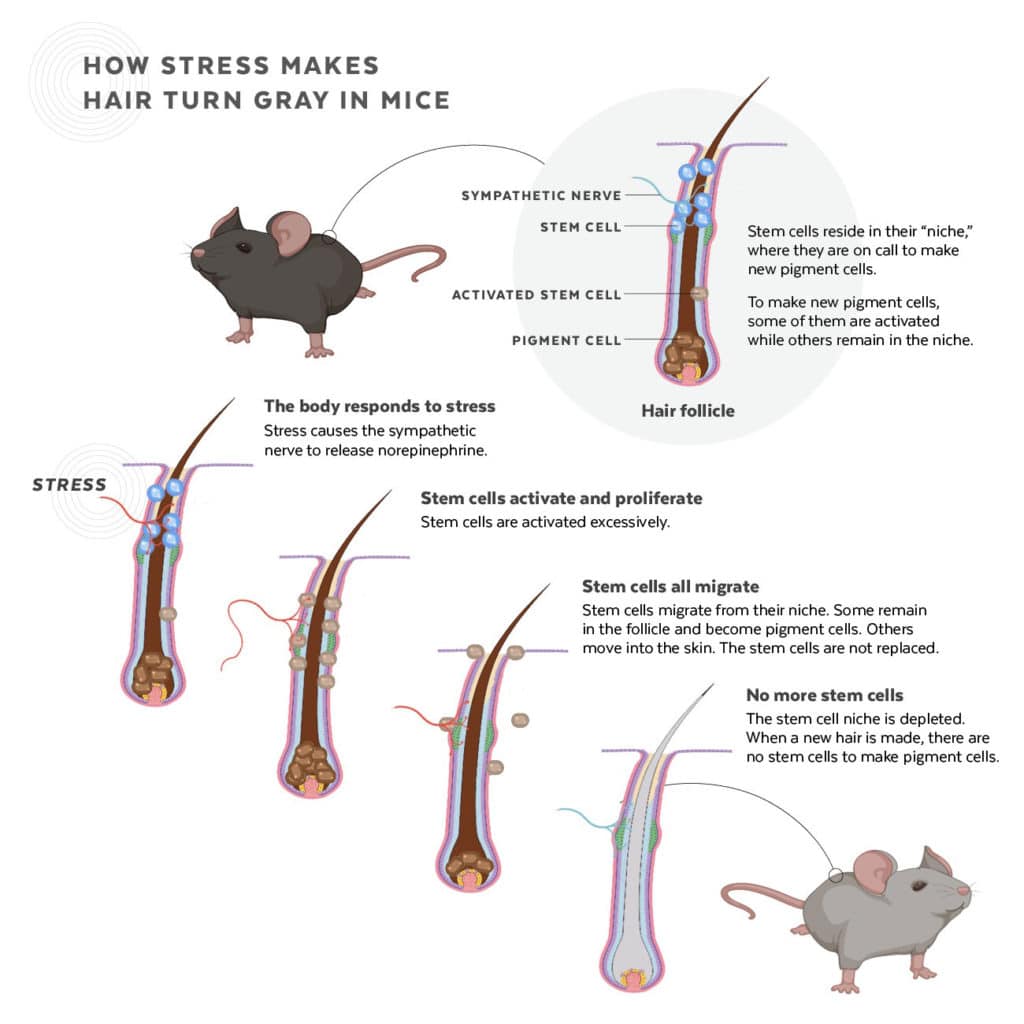Stress gives some physical marks on our bodies. It can damage your mood. It may also cause various physical and mental problems.
When it comes to graying hair, scientists are still finding causes of it. According to a new study, acute stress leads to hair greying through the fast depletion of melanocyte stem cells.
Stress initiates nerves that are part of the fight-or-flight response, which thus makes permanent damage to pigment-regenerating stem cells in hair follicles.
Senior author Ya-Chieh Hsu, the Alvin and Esta Star Associate Professor of Stem Cell and Regenerative Biology at Harvard, said, “Everyone has an anecdote to share about how stress affects their body, particularly in their skin and hair — the only tissues we can see from the outside. We wanted to understand if this connection is true, and if so, how stress leads to changes in diverse tissues. Hair pigmentation is such an accessible and tractable system to start with — and besides, we were genuinely curious to see if stress indeed leads to hair graying.”
Stress causes an immune attack on pigment-producing cells. Nonetheless, when mice lacking immune cells still show hair turning gray, scientists went to the hormone cortisol. Again, they found a dead end.

Hsu said, “Stress always elevates levels of the hormone cortisol in the body, so we thought that cortisol might play a role. But surprisingly, when we removed the adrenal gland from the mice so that they couldn’t produce cortisol-like hormones, their hair still turned gray under stress.”
After eliminating different possibilities, scientists honed in on the sympathetic nerve system, which activates what is often termed the fight or flight response.
Sympathetic nerves branch out into each hair follicle on the skin. The analysts found that stress makes these nerves release the chemical norepinephrine, which gets taken up by nearby pigment-regenerating stem cells.
In the hair follicle, certain stem cells act as pigment-producing cells. When hair regenerates, some of the stem cells convert into pigment-producing cells that color the hair. The norepinephrine from sympathetic nerves causes the stem cells to activate excessively. The stem cells all convert into pigment-producing cells, prematurely depleting the reservoir.
Hsu said, “When we started to study this, I expected that stress was bad for the body — but the detrimental impact of stress that we discovered was beyond what I imagined. After just a few days, all of the pigment-regenerating stem cells were lost. Once they’re gone, you can’t regenerate pigments anymore. The damage is permanent.”
“By understanding precisely how stress affects stem cells that regenerate pigment, we’ve laid the groundwork for understanding how stress affects other tissues and organs in the body. Understanding how our tissues change under stress is the first critical step toward eventual treatment that can halt or revert the detrimental impact of stress. We still have a lot to learn in this area.”
Their study on graying has just been published in Nature.
